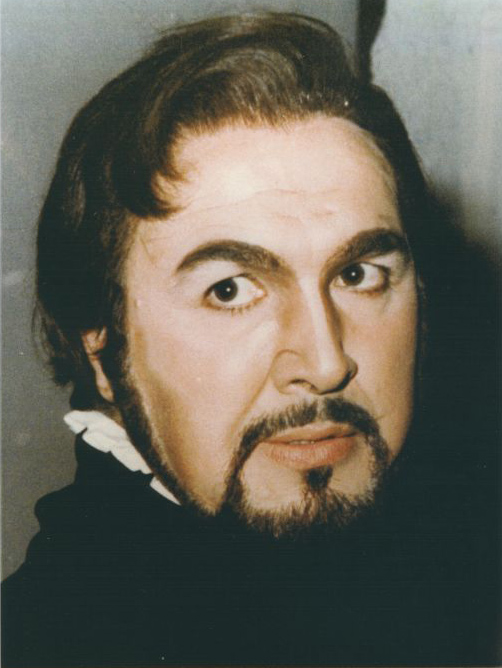Louis Manikas was a distinguished Greek baritone. He was born in a village of Laconia (Sparta district) in 1938. He studied
at the National Conservatory in Athens in the class of Miltos Vythinos (a Greek opera singer of the 1940s who became one of
the most noted music teachers in Greece, with students such as Nico Zaccaria, Constantino Ego, Zahos Terzakis and Lela
Zografou). Manikas also mentions Charalambos Papalambrou as one of his teachers. He studied abroad with a Maria Callas
Foundation fellowship. He was a noted Tito Gobbi student. His first major success was as Ford in Falstaff
in Amsterdam in 1975, followed by Tosca in Torre del Lago (with Tito Gobbi as director and Raina Kabaivanska
and Luciano Pavarotti in the other two main roles), Così fan tutte (as Alfonso)
in Palermo and Tosca in Berlin and then at the Vienna Opera. He appeared as Jack Rance
in La fanciulla del West at the New York City Opera in 1983. One of his most unusual performances
was in North Korea at the opera of Pyongyang!
He appeared often at the Athens Lyric Opera: in Il barbiere di Siviglia, Zar und Zimmermann,
Tosca, La traviata, Evgenij Onegin, Simon Boccanegra, Il trovatore, Salome,
Lohengrin and Pagliacci.
Manikas' performances as Conte di Luna in Il trovatore at the Athens Lyric in 1975 obtained enthusiastic
reviews. That night Cornel Stavru (the famous Romanian-Greek tenor) was Manrico, Tamara Milashkina was Leonora,
Lela Stamatopoulou was Azucena and Vassilis Fakitsas was Ferrando.
His career developed mainly in Germany (1979–2006), singing in Kassel, Stuttgart, Berlin, Munich, Düsseldorf,
Frankfurt, Hannover; and also in Vienna, Palermo, Bologna, Genova, Belgium, France, Israel, Denmark,
Lithuania, Holland, Portugal, Bulgaria, Finland, the Czech Republic.
Regrettably, I am aware of only one recording with his voice, a 1986 Les contes d'Hoffmann from Frankfurt. There's more than that, see below.
Nicholas Peppas
